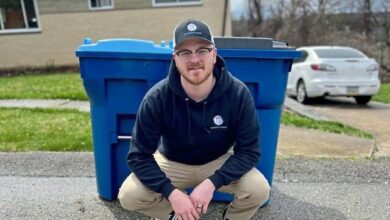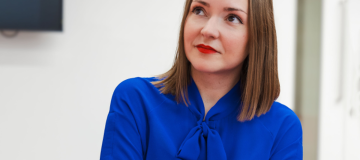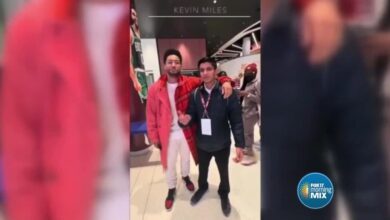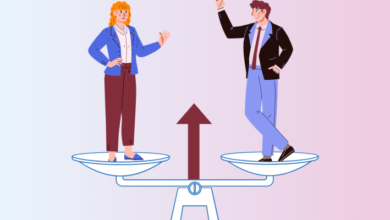Successful start-up founders’ advice for aspiring entrepreneurs

- Young adults are more likely than older cohorts to say that “owning my own business” is key to their financial security, according to a CNBC-SurveyMonkey poll.
- CNBC, in partnership with Junior Achievement, brought together business leaders in the Denver area to speak with students about their journey in founding a company.
- Successful entrepreneurs work through challenges, learn quickly from failure and surround themselves with people who support them.
The Junior Achievement Free Enterprise Center located in Greenwood Village, Colorado, is where high school students can explore careers and develop a plan to pursue their goals. The center aims to inspire the next generation of entrepreneurs.
Entrepreneurship is a common goal for younger people.
More than half, or 54%, of Gen Z adults say that they think they’d be happier owning their own business than working a normal day job, according to CNBC and SurveyMonkey’s new Workforce Survey. The survey polled 5,993 U.S. adults in the workforce in early April — including 770 Gen Z respondents age 27 and younger.
“There’s a recipe for finding your path to purpose,” said Robin Wise, the president and CEO of Junior Achievement Rocky Mountain. “It’s seeing people do things that you might want to do. It’s knowing yourself.”
In partnership with Junior Achievement, CNBC brought together business leaders in the Denver area to speak with students about their journey in founding a company. Here are five key pieces of advice that they shared:
Mowe Haile, Founder of Sky Blue Builders, Darian Simon Cofounder of Be a Good Person, and Robin Thurston, Founder and CEO of Outside Interactive, Inc. speak with students about entrepreneurship.
Caitlin Steuben | CNBC
Darian Simon co-founded the clothing company Be a Good Person in 2015 to inspire positivity. He advises young people to “embrace what makes you different.”
Simon was diagnosed with autism and ADHD, or attention-deficit/hyperactivity disorder, at age 28. Now 30, he said he rejects the “disorder” part of the diagnosis and embraces it as his superpower.
“My greatest strengths are my neurodivergence because I have less inhibitive space in my brain, therefore I can ideate better,” he said. “Therefore the box doesn’t really exist in the same ways.”
Robin Thurston sold his digital fitness technology start-up to Under Armour for $150 million in 2013. He recently founded Outside Interactive, a network of media brands in endurance sports, the outdoors and healthy living.
He compares starting a business to going on a difficult hike and advises keeping that analogy in mind as you embark on the journey — you’ll need to embrace the unknown, recognize that things are unlikely to go according to plan and work through inevitable difficulties, he said.
“That’s what great entrepreneurs do,” Thurston said. “They’re resilient, and they work their way through those challenges.”
Camila Uzcategui co-founded Vitro3D, a company that uses 3D printing-like technology in advanced manufacturing spaces, in 2020. She said her background in physics and interest in experimenting with technology taught her the value of failure.
“In all of those challenges, I like to see them as opportunities to either pivot into a potentially new direction or pivot into a better way of understanding something,” Uzcategui said.
Mowa Haile founded Sky Blue Builders, a construction company, during the Great Recession in 2009. He said it’s important to surround yourself with people who share your passion — and always expect excellence from them.
“When you’re an entrepreneur and you have a team, you’re there to coach them and lead them and encourage them,” he said.
Lara Merriken founded Larabar, a company that makes vegan, gluten-free, plant-based bars, in 2000 after a career in social work.
“A lot of people were literally naysayers,” she recalled. “They were just like, why would you do this? Why would you get into a category that’s oversaturated?”
She said that identifying and working with trusted confidants who were supportive and encouraging were critical to the company’s success. She sold Larabar to General Mills in 2008 for about $55 million.
Another recipe for success is to learn from other entrepreneurs’ stories, Merriken said. “While we have our companies, we still need inspiration every day.”
SIGN UP: Money 101 is an 8-week learning course to financial freedom, delivered weekly to your inbox.



